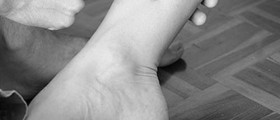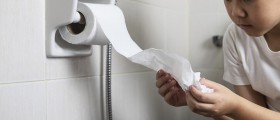
Enuresis is a medical term for involuntary urination which commonly affects children, predominantly boys. Usually, daily or nocturnal enuresis appears once the child is younger than 4, since he/she is not yet capable of controlling his/her bladder. However, older children may suffer from this condition too, due to various reasons.
Causes of Enuresis
In some cases, proneness to bed-wetting may be present in the family of the affected individual. Therefore, it is suspected that enuresis is connected with genetics. Alternatively, bed-wetting may take place once a child cannot wake up from a deep sleep and go to the bathroom when necessary. Stress is yet another possible cause of enuresis. Childhood trauma, as well as exciting and euphoric events may all lead to bed-wetting.
Additionally, a child may suffer from insufficiently developed nervous system, being incapable of communicating with the brain properly, informing this organ of full bladder. Also, human beings possess a special hormone which regulates and decreases water production during the night. Sometimes, a deficiency in this hormone results in bed-wetting and enuresis in general.
Sometimes, the reasons may be a bit more serious, such as the presence of urinary tract infection, abnormalities in the urethral valves or ureter, spinal cord problems and the presence of a bladder too small to hold water for long enough.
Usually, the child does not wet the bed voluntarily. Rather, he/she has no control over this process and needs help in order to overcome it.
Treatment for Enuresis
The first step towards a successful treatment is establishing whether some kind of an underlying problem is behind bed-wetting in your child. In order for this to be possible, you need to take the child to the doctor.
He/she will ask the child a set of questions and perform a routine physical examination, ruling out some of the possible causes of enuresis. Urine testing may also be necessary, in order to confirm/rule out the presence of infections or diabetes.
Treating the underlying cause, if it is present, is the key to stopping the bed-wetting habit in your child. Yet, there are steps you can take in order to cut back the possibility of bed-wetting in your child.
Do not give the child fluids before he/she goes to bed. Also, make going to toilet before going to bed a routine. If your child does not mind, have a bed-wetting alarm installed in the bed. Do not punish the child for having this problem. Rather, reward him/her every time he/she manages to stay dry overnight.
Finally, you can help your child train his/her bladder by holding urine for longer and longer each time, stretching the bladder. Remain supportive and, if current methods are not working, seek medical assistance and ask for medications or alternative treatments.

















Your thoughts on this
Loading...